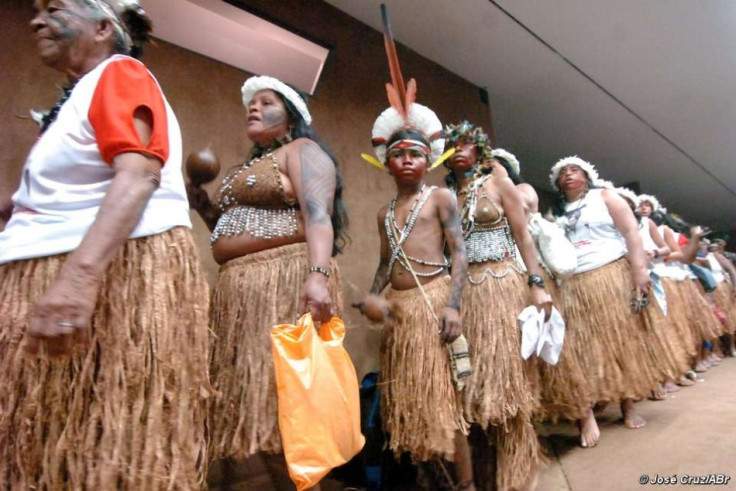Threatened Pataxo Indian Tribe of Brazil Celebrates Supreme Court Decision

The Pataxo Ha-Ha-Hae Indian tribe, residing in Brazil, has been allowed by a Supreme Court verdict to live undisturbed in their area. The court has asked the ranchers illegally occupying the area and their indigenous territory to leave the region.
The decision by Brazil's Supreme Court came after a long judicial battle, the Survival International organisation informed.
For decades, the Pataxo of Bahia state has been subjected to violent conflict by the ranchers and other poachers illegally occupying the area.
They have been pushing to be able to live undisturbed on their ancestral land, a right guaranteed to them by Brazil's constitution and by international law.
According to Survival International, State Deputy Padre Ton emphasised that this land is for the Indians, "chased away and evicted by the violence they suffered".
The history of the colonisation of Bahia's southern region is a tragic tale of tremendous violence exerted against the Indian inhabitants.
Time and again the indigenous groups residing in the region have been subjected to threats, affronts, challenges and aggressions of hired thugs.
The Cultural Survival reported that during the latter half of the nineteenth and first decades of the twentieth century, Indian hunting became a profession in southern Bahia. Hired gunmen were often employed to kill Indians and clear the way for the establishment of great cacao plantations. The difficulties of the pursuit, however, soon caused the invaders to adopt new strategies; poisoning watering places, leaving smallpox-infected clothes in Indian areas, setting traps and so on.
Even though the Service for the Protection of Indians (SPI) posts were installed later in the region, these did not end the violence in the region.
Ranchers started to prevent Indians to travel to nearby towns to purchase food and necessities or even water during the dry season. In three years, from 1982 to 1985, 29 children died. In spite of all their hardships, the Pataxó have stood fast. So, the ranchers' violence increased again.
The new court ruling comes as a welcome change among the Indians who have suffered decades at the hands of the ranchers.
© Copyright IBTimes 2025. All rights reserved.




















